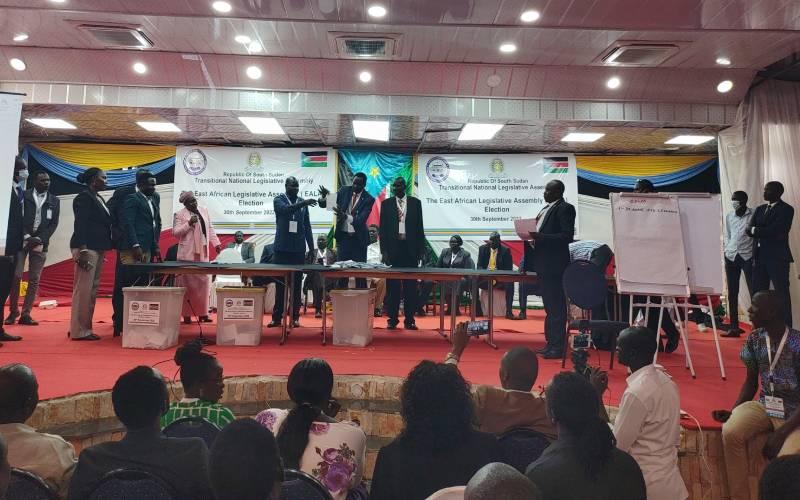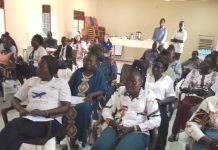Africa-Press – South-Sudan. South Sudan will risk having a disastrous electoral exercise marred by massive spoilt votes if the country fails to conduct proper civic education, a legislature has warned.
Mukulia Kennedy Ayason, who was recently voted at the East African Legislative Assembly(EALA) on independent ticket, opined that although the election was credible, the number of invalid votes was so overwhelming that it slashed the chunk of votes received by the candidates and the resultant turnout.
This, he said, could be replicated in the 2024 when South Sudan hold her national elections.
“Should the voter education have been done, then, we would not have encountered the issue of invalid votes that might have reduced votes cast against candidates that managed to get through and those that did not,’’ he lamented.
Mukulia said this was just a good lesson for the bigger test.
“It was a good election and this will give us the opportunity to see how we can have elections in this country in the coming years.” This should actually be reciprocated and done at the national level.
He urged South Sudanese to learn from the recent parliamentary election so that the nation could better prepare for the 2024 general elections.
‘Noble lesson’
As part of the general election in Sudan, regional elections were held in South Sudan between April 11 and April 15, 2010. By then, President Salva Kiir of the Sudan People’s Liberation Movement won the presidential election after receiving nearly 93 percent of the vote against Dr. Lam Akol of the SPLM-Democratic Change who garnered 7.01 per cent of the votes. There were 4,539,835 registered voters who cast ballots.
However, the chairperson of the TNLA’s electoral committee, George Andrea Juma, expressed a different view, saying that every election has its own set of circumstances and that the general election is completely different from the election held by the parliament in terms of preparations and execution.
“But at least this time we tried to make it more transparent and fair… Juma said the general election is a different exercise, and you can’t compare it to the one of parliament,” Juma said.
He attributed the huge number of invalid votes to factors such as language barriers and old age, which he said are common mistakes that are inevitable.
“This observation is OK and we will take it with us…they need to be educated before voting so that they know how to vote,” he said.
According to the instructions given to the MPs, a voter could only mark off up to nine candidates from the list that had been verified for the election, and those candidates had to be within the tick box. However, some MPs crossed off more than nine candidates, and others crossed off candidates from the tick box, resulting in invalid votes.
Even when Juma claimed that it was unnecessary to take them into account in the results; he did not specify how many of those votes were invalid for The City Review.
For More News And Analysis About South-Sudan Follow Africa-Press






